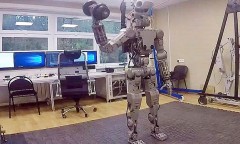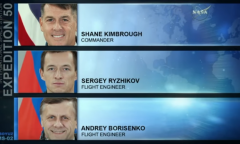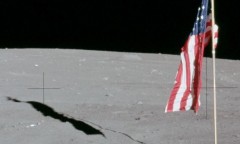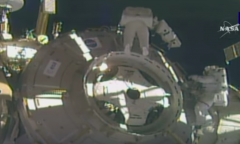By KM Diaz, | April 15, 2017
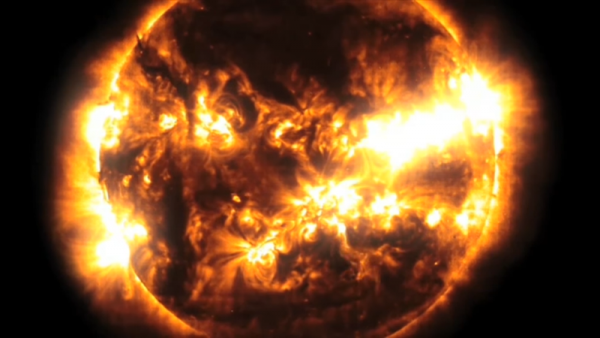
Solar radiation is considered to be more harmful than the galactic cosmic rays. (YouTube)
Radiation is sometimes useful, but often harmful. Scientists are looking for ways to protect astronauts traveling to Mars from harmful radiation in outer space.
The magnetic field of the Earth protects the people from radiation by blocking the particles in radiation belts that surround the planet. These doughnut-shaped that surround the space are called "Van Allen belts" and lie 36,000 miles away from the surface of the Earth.
Like Us on Facebook
Astronauts will pass through these belts when traveling to outer space. Crossing in the Van Allen belts is considered dangerous for space travelers since they will pass through trapped particles, making their body vulnerable.
Scientists at the Wake Forest Institute for Regenerative Medicine are part of a NASA-funded study to analyze the harmful effects of radiation on astronauts going to Mars. The research team is focusing on the hematopoietic system which is composed of lymph nodes, bone marrow, thymus, and spleen.
According to Christopher Porada, the senior researcher behind the project, the hematopoietic system contains the most common sensitive tissues in the body that will be affected by radiation. Astronauts may develop leukemia, and the mission will be compromised as well.
Galactic cosmic rays are not serious during shorter trips because of the low radiation dose rate. Astronauts going to the Moon get a minimal amount of radiation in the mission, but the mission to Mars involves a long period (approximately two years), and the rate of radiation may present a serious threat.
The team has developed a daily oral vitamin to protect astronauts from the harmful effects of radiation in the space. About 75 percent of the potentially damaged cells were restored when the astronauts took the supplement before radiation exposure. However, the pill is not well absorbed orally, and the researchers are still working on its solubility.
Another company also is also working to protect astronauts. StemRad is an Israeli company located in Tel Aviv; it specializes in radiation protection for first responders and nuclear workers. The company develops a vest to protect astronauts against space radiation. The vest is designed to defend stem cells, tissues, and vital organs since they are most vulnerable to radiation.
Apart from galactic cosmic rays, there is another type of radiation - solar radiation. This radiation is considered to be more harmful than the galactic cosmic rays. The solar particle events or solar proton events are all product of energetic particles emitted by the sun.
According to Elsayed Talaat, a scientist in NASA's heliophysics division, some particles discharged by space weather events like solar flares could affect the health of astronauts in the short term. It could damage the central nervous system and may lead to impaired motor function and cognitive function. Long term exposure to the particles may increase the risk of cancer.
NASA is looking at different methods to protect Mars astronauts against solar radiation. The Orion spacecraft had radiation sensors to notify the crew when a solar flare or other radiation event occurs.
-
Use of Coronavirus Pandemic Drones Raises Privacy Concerns: Drones Spread Fear, Local Officials Say

-
Coronavirus Hampers The Delivery Of Lockheed Martin F-35 Stealth Fighters For 2020

-
Instagram Speeds Up Plans to Add Account Memorialization Feature Due to COVID-19 Deaths

-
NASA: Perseverance Plans to Bring 'Mars Rock' to Earth in 2031

-
600 Dead And 3,000 In The Hospital as Iranians Believed Drinking High-Concentrations of Alcohol Can Cure The Coronavirus

-
600 Dead And 3,000 In The Hospital as Iranians Believed Drinking High-Concentrations of Alcohol Can Cure The Coronavirus

-
COVID-19: Doctors, Nurses Use Virtual Reality to Learn New Skills in Treating Coronavirus Patients


